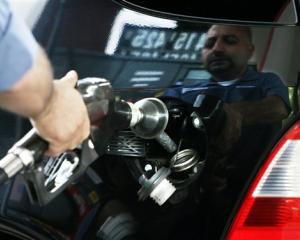As the psychological barrier of $2 a litre for petrol was passed for many Otago motorists yesterday, a warning has gone out the pain may get worse.
Fuel companies pushed up prices by 3c yesterday, with the AA saying it was no surprise the price had increased.
In main centres, the price of 91 was at $1.97 a litre, while for 95 petrol the price went past the $2 mark, and was at $2.03 a litre.
Diesel increased by 6c to $1.68.
The rise was blamed on the continuing increase in price of both raw and refined product, and a drop in the value of the New Zealand dollar.
But spare a thought for those further inland, as most motorists outside Dunedin were forced to pay $2 a litre, if not more, for 91, the fuel of choice for most motorists.
The Makarora Wilderness Resort increased its price to $2.41 a litre for 91 petrol yesterday, while diesel increased to $1.91, believed to be the dearest in the country.
Just down the road at the Makarora Country Cafe, the price was lower, at $2.10 a litre, and $1.70 for diesel.
Haast Beach Service Motors owner Shane Johnston said he was waiting for a fax to increase the price, but being the most isolated service station in the country, the cost had gone above $2 a litre a fair while ago.
People were still filling up, but it was a quiet time of the year.
Fox Glacier Motors owner Clark Johnston, selling 91 at $2.10 a litre, said people were still filling up but "if people only used petrol for what they need it for, then it is not expensive".
He said overseas tourists still felt petrol in New Zealand was relatively cheap compared to their home countries.
AA spokesman Mark Stockdale said the rise was not a surprise as raw product prices were increasing and the New Zealand dollar had dropped by a couple of cents last week.
He was surprised the price rise did not occur last week.
The price of petrol going above $2 a litre was a psychological barrier for many people, but driving habits were already changing.
Motorists were no longer popping out in their cars, and many people were considering public transport.
Shell spokesman Jackie Maitland said although there was no hard evidence, there was anecdotal evidence people were forgoing the chocolate bar or the drink in the service station after filling up.
Mr Stockdale said the worry was the hefty increase in diesel, which was the fuel of commerce, and its impact on transport companies.
He said as the domestic economy worsened, the concern was the value of the New Zealand dollar would drop, and petrol prices would once again rise.
The strong value of the New Zealand dollar had insulated the rise in the price of oil somewhat, but as the dollar dropped, the price at the pump would multiply.









